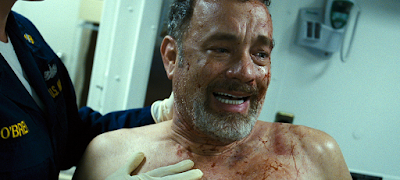or
"Is It Real?" "I Dunno. Ask Him."
Prejudices out front: the original Blade Runner is, to me, a beautiful, fascinating, very watchable failure. All of those aspects land at the feet of director Ridley Scott, who directed it to a high, gritty gloss, while not understanding the source material or its theme...at all. That's the frustrating thing about the man. Blade Runner has a troubled history—on its initial release, studio butterflies forced concessions (the narration, which, as a device doesn't seem out of place in a noir-landscape, but the horribly written final version of it was insulting), and Scott has spent 30 years "Lucasing" it to conform with his idea that its main character, the "blade runner"—a title which was bought from another sci-fi property and has nothing to do with Philip K. Dick's original story* or the film (it just "felt" edgy, kids)—was, actually, himself, a replicant, charged with killing other replicants. I don't know why Scott came to that conclusion, other than he liked replicants better than human beings, or he was put off by Harrison Ford's human Deckard boinking Sean Young's android Rachael, or it might be a reaction to the fractious relationship he had with his star while filming. Who knows? I've always found Scott's contention thuddingly stupid, but that's what you get when you're more concerned with the fluff in the air than the words on the page.**
 |
| "How was your day, honey?" |
Along the way, several complications have occurred. An electromagnetic pulse discharged in the atmosphere in 2022 rendered the records previous to that time unusable—convenient for slowing down the plot, but not so inconvenient that somebody can't be found to trace things back to their source and even replay old software records. San Diego has become a citywide dumping ground. And Las Vegas, an irradiated ghost-town. The Tyrell Corporation went bankrupt after the death of its founder at the thumbs of one of his creations (in the original), necessitating the disposal of that line in favor of the more advanced "Nexus-8" replicants, and acquired in a buy-out by one Niander Wallace (Jared Leto), a visionary with a singular lack of vision, given to internecine plots to keep his supply to the "off-world" colonies (we're never sure where that might be, but it has to be close as it's just 2049) and as good as he is at the manufacturing of replicants, he can't seem to keep up with demand. Coincidentally, the discovery by the LAPD of the replicant bones may solve the issue, and so he sends his assistant, Luv (Sylvia Hoeks) to keep a close eye on the investigation, even to the point of stealing the evidence.
At the end, K is given a much darker truth that changes his mission and makes him take the actions that will finish the film, acts of self-sacrifice done in the despair that what he might have treasured is not so special a thing at all, but will make him fight for what he sees as genuine—not unlike Roy Batty at the end of the original Blade Runner. His world is rocked by the negation of his hope of uniqueness, and he is given a damning realization that he is just part of a bigger system of manipulation, commodified and cheapened by corporate interests, and he is left with nothing of value, other than what he can do to make his life worth...something.
There is a larger evil in the world that he is powerless against it, and, indeed, he's part of it. And he's an artificial life, a manufactured copy, a simulation of his human masters. How would such a being feel about that? As with the original, it makes me wonder about the relationship between us and our machines. We all name our cars (don't we? Please tell me you do, too), or "personalize" our computers. Is that a way of grafting affection, producing a partnership? It makes me occasionally wonder if my kitchen micro-wave might be grieving that the plastic has worn away from the "Start" button and sees that as neglect. The "Toy Story" series played with that (especially Toy Story 2). So, did Spielberg's (and Kubrick's) A.I.
Blade Runner 2049 is flawed—sure, it is. But, I find it better than the original, one of a handful of sequels that can boast that, certainly in that it, and its director, knows what it's doing. It takes the original, deconstructs it, expands on it, and ends up being more truthful to its source material than its own adaptation. It makes you think, and like any really good film in the tradition of film-noir, not in a good way.
* "Do Androids Dream of Electric Sheep?" Have you read it? You should.
** This may seem minor to Blade Runner fans, but is essential to the story's theme about the mechanical replicants teaching the human killer what it means to be human. And Scott's tinkering with the film over the years—the insertion of a unicorn dream (which actually "plays" when contemplating a replicant's uniqueness—or the fragility of a life), the reflective qualities of a replicant's eyes—which is given to Deckard, the suggestiveness of the origami figure Deckard is left by his fellow officer Gaff, and the implication that Deckard, like all replicants—has been implanted with memories—to maintain that Ford's Deckard is a replicant (despite the character's all-too-human flailing about in the film) renders that central theme empty and useless. It's like saying that Charles Foster Kane's last words implies that he mourns the loss of snow rather than the carefree childhood, implied by his sled, that was lost when he was signed over to Thatcher by his parents.
































